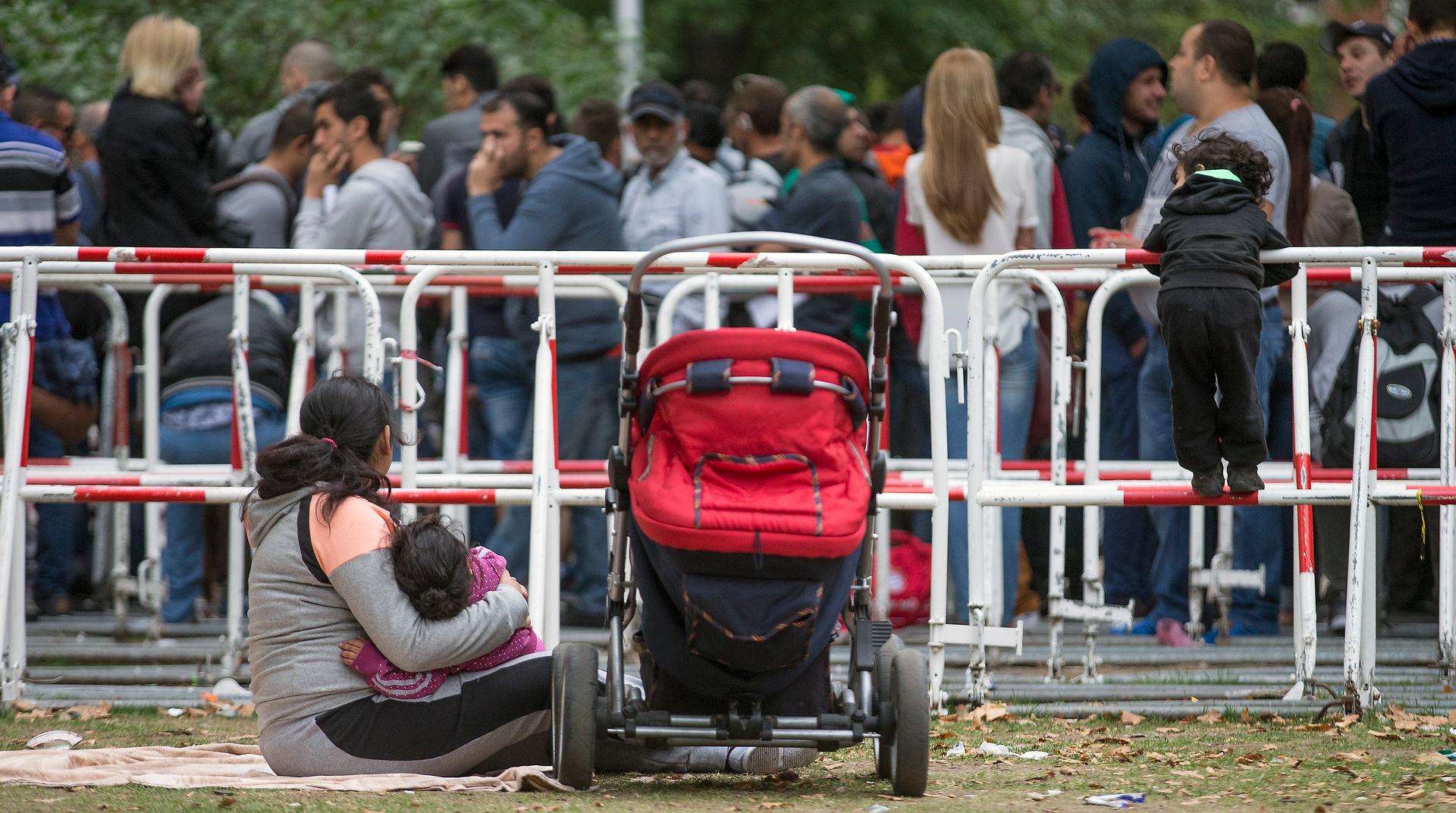Germany is receiving way fewer refugees now, but the crisis isn’t over
Migrants wait in front of the State Office for Health and Social Affairs in Berlin, Germany, on Sept. 3, 2015.
More than a million asylum-seekers came to Europe last year. Now that a prime pathway, the Balkan route, is blocked, some officials are breathing more easily.
That’s especially the case in Germany — Europe's biggest destination for people fleeing war, poverty, disaster or all of the above. Its government recently reported a more than 60 percent drop in new arrivals during the first quarter of this year compared to the last three months of 2015.
Reception centers across the country were once packed with refugees. Now many centers are sitting half-empty. The stream of people has slowed so much Germany has even promised to suspend spot checks on its border with Austria next month.
But that doesn’t mean the headaches are over. On the contrary: The decline in new arrivals has been accompanied by a spike in the number of asylum claims, officials say.
Last year, around 476,000 people filed for asylum in Germany, according to immigration authorities there. This year, 181,000 applications were filed in the first three months alone — up 112 percent from the same time in 2015.
Many migrants typically spend months at transit centers before filing their asylum applications, thanks mostly to the backlog of paperwork at an overstretched federal migration office. German law has no maximum limit on how long it takes to consider an application. In recent years the process has taken an average of five to seven months, state statistics show.
It’s just another step in the daunting bureaucratic task of processing hundreds of thousands of newcomers.
The federal government has also been busy deporting the thousands of people whose asylum claims are rejected, a process that’s likely to continue as they plow through new applications. Officials say Germany repatriated more than 22,000 people in 2015, 60 percent more than the year before. This year, the country sent away almost 4,500 in January and February alone, and the numbers are climbing.
The country’s ruling coalition proposed new measures last week mandating language and culture lessons for asylum-seekers in exchange for residence and access to jobs. Those measures, which the country’s leadership hails as “historic,” also reportedly levy penalties on those who fail to successfully integrate.
Some experts are worried about what might happen without a smooth integration.
“What must not happen is that the ethnic-social stratification that we already have in Germany is reinforced by immigration,” political expert Stefan Luft, a professor at the University of Bremen, told the German weekly Die Zeit. “It is crucial that these people eventually blend into the majority of society, and don’t compete with the socially vulnerable.”
Every day, reporters and producers at The World are hard at work bringing you human-centered news from across the globe. But we can’t do it without you. We need your support to ensure we can continue this work for another year.
Make a gift today, and you’ll help us unlock a matching gift of $67,000!
